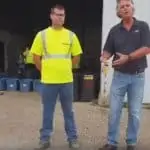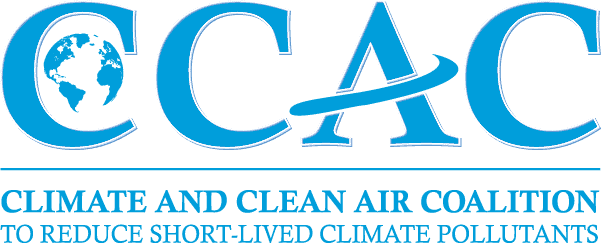


Webinar Description
A waste characterization study is an important tool for helping local governments and private companies make decisions on the best solid waste management programs, policies, and technologies to reduce short-lived climate pollutants. Knowing what materials comprise your waste stream will help you establish the right mix of waste diversion and energy programs to make your community more sustainable.
This webinar provides information on how to conduct a waste characterization study, what data you can expect to obtain from a study, and how it can be used to make solid waste program and policy decisions. Topics of discussion during the webinar include:
Webinar access:
Join WebEx meeting
Meeting number (access code): 648 518 922
Join by phone
+1-415-655-0002 US Toll
Global call-in numbers
Thank you to the United Nations Environment, Climate & Clean Air Coalition (CCAC) for sponsoring this valuable event.
ISWA President David Newman report from Paris on the United Nations Climate Change Conference (COP21). In his report on the various negotiations and activities in Paris, David Newman highlights the work ISWA is doing with the international organisation Climate and Clean Air Coalition (CCAC). This includes the establishing of work plans for developing country’s major cities including Sao Paulo and Dar Es Salaam and holding the first Finance Workshop on to support cities seeking access to finance for municipal solid waste projects.
SCS Engineers is proud to participate in the Climate and Clean Air Coalition to Reduce Short-Lived Climate Pollutants (CCAC). SCS participates in the CCAC’s initiative to mitigate Short-Lived Climate Pollutants (SLCPs) from the Municipal Solid Waste sector.
The CCAC is a voluntary international framework that encourages countries and organisations to take concrete steps to reduce SLCPs in order to protect the environment and public health, promote food and energy security, and address near-term climate change. The initial focus is on methane, black carbon, and many hydrofluorocarbons (HFCs). Fortunately, as their name indicates, SLCPs have a relatively short lifetime in the atmosphere, and therefore, determined efforts to mitigate them now can significantly reduce their concentrations in a relatively short period of time. Many cost-effective technologies and practices have already been implemented in key sectors around the world and benefits are being seen.
To learn more about the CCAC program contact Dana Murray, a Vice President and the CCAC-SLCP Project Director at SCS Engineers.
David Newman’s report from Paris
SCS Engineers is proud to announce its acceptance as an “Actor” in the Climate and Clean Air Coalition to Reduce Short-Lived Climate Pollutants (CCAC). SCS will participate in the CCAC’s initiative to mitigate Short-Lived Climate Pollutants (SLCPs) from the Municipal Solid Waste sector.
The CCAC is a voluntary international framework that encourages countries and organizations to take concrete steps to reduce SLCPs in order to protect the environment and public health, promote food and energy security, and address near-term climate change. The initial focus is on methane, black carbon, and many hydrofluorocarbons (HFCs). Fortunately, as their name indicates, SLCPs have a relatively short lifetime in the atmosphere, and therefore determined efforts to mitigate them now can significantly reduce their concentrations in a relatively short period of time. Many cost-effective technologies and practices have already been implemented in key sectors around the world and benefits are being seen.

The Coalition sponsors eleven initiatives designed to address urgent environmental challenges through collective and individual partners’ action. Some of the initiatives include: reducing black carbon emissions from heavy-duty diesel vehicles and engines; promoting HFC alternative technology and standards; addressing short-lived climate pollutants from agriculture; supporting national planning for action; financing mitigation of SLCPs; regional assessments; and urban health.
Founded in 2012, the CCAC is the first global effort to address the urgent challenge of SLCPs. The Coalition encourages all countries, regional economic integration organizations (REIO), intergovernmental organizations (IGOs), non-governmental organizations (NGOs), and private sector entities that are committed to solving this global and collective challenge to participate in its initiatives. To date, 48 countries, 14 IGOs, and 43 NGOs participate in the CCAC.

Upon receiving the letter of acceptance, SCS Vice President Dana Murray said, “We are pleased to be approved as an Actor and believe this initiative makes a difference in the human health and environment of the cities it assists because it looks at improving municipal solid waste management holistically at the local level.”